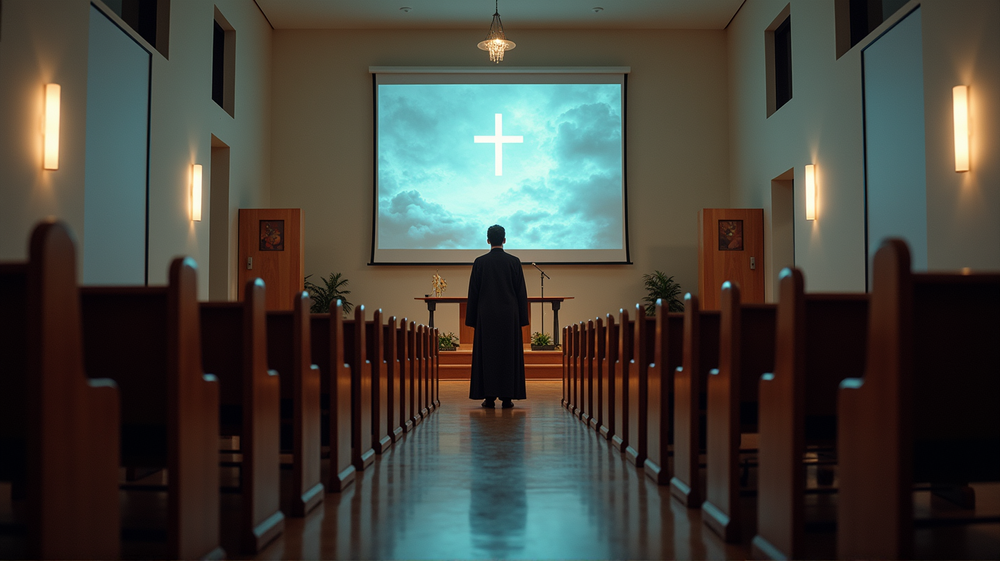In the unprecedented times of the COVID-19 pandemic, the fabric of religious life in the U.S. underwent a transformative shift. The pandemic not only tested the resilience of faith communities but also catalyzed a significant evolution in how religious practices have been conducted and perceived.
Virtual Congregations: Embracing Technology
As church doors closed to curb the spread of the virus, religious communities across the nation turned to digital platforms to continue their spiritual practices. Streaming services and virtual gatherings became the new norm. Platforms like Zoom hosted everything from Sunday services to Bible studies, allowing congregations to maintain a sense of connection despite physical distancing. According to Pew Research Center, this digital pivot proved to be a lifeline for many faith practitioners, keeping communities engaged and spiritually nourished.
Reimagining Worship Spaces
The once vibrant and bustling church halls saw a dramatic reduction in physical attendance, with online services taking the forefront. This transformation prompted religious institutions to reconsider the use of their spaces and the ways they can serve congregants beyond traditional formats. Some churches opened their doors for essential services, like food banks, demonstrating adaptability and service to the community.
Altered Rituals and Practices
Traditional rituals faced significant modifications to ensure safety and comply with health regulations. Communion practices, shared meals, and communal prayers were re-invented to fit the virtual space or socially distanced gatherings. This adaptation illustrated the enduring nature of faith practices, with communities creatively overcoming obstacles to maintain their spiritual rites.
Social and Emotional Impacts
The pandemic also took a toll on the mental well-being of many individuals, with religious leaders playing a crucial role in providing solace and support. Churches acted as anchors of hope, offering counseling and faith-based guidance to help believers navigate the uncertainty and isolation brought by the pandemic.
Changing Theological Perspectives
For some, the pandemic prompted a re-evaluation of personal beliefs and an exploration of the deeper meanings of life and spirituality. The challenges faced led to discussions that transcended traditional dogmas, inviting new interpretations and reflections on faith. As stated in Pew Research Center, these discussions have been pivotal in fostering a more inclusive and understanding religious dialogue.
The Future of Faith Communities
Looking ahead, the experiences of the pandemic have laid a foundation for a hybrid model of worship that merges traditional and digital practices. This evolution suggests a new era for religious life in the U.S., where inclusivity and adaptability are the hallmarks of spiritual engagement.
In reflection, the COVID-19 pandemic has undeniably redefined U.S. religious life, not as a decline or loss, but as an evolution towards a more resilient and versatile expression of faith.













